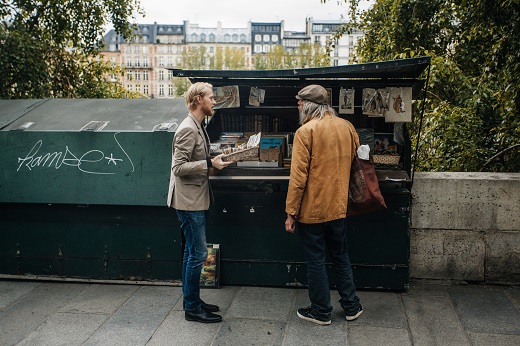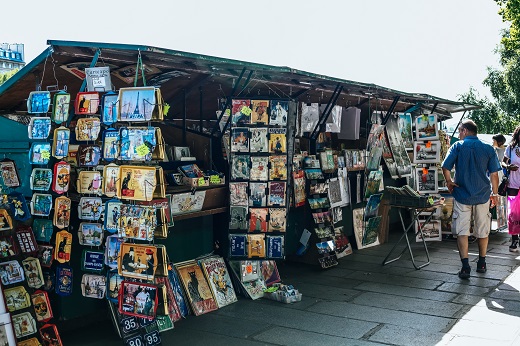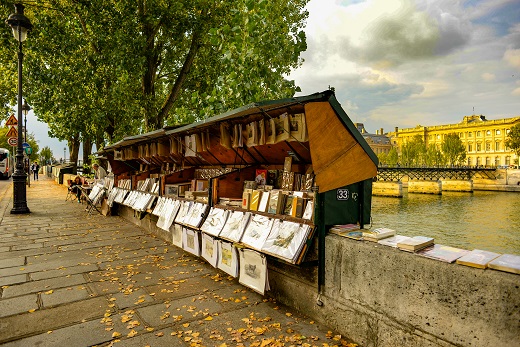Small, independent, secondhand booksellers have been part of the Parisian landscape for centuries. The city’s present-day free-spirited book peddlers trace the roots of their tradition back to the era of bohemian◆ intellectualism◆, of __1__ the French remain proud. Some 250 book vendors, or bouquinistes, occupy trademark green stalls◆ along the banks of the beautiful river Seine, making up “the world’s largest open-air◆ bookshop.” An integral part of Parisian culture, these bouquinistes are obliged to be open at least four days a week, plying◆ their wares◆ rain or shine, summer or winter. But all is not well. In this age of social media and online games, sales of used books have plummeted. __2__ visitor numbers since the 2015 Paris terrorist◆ attacks and a general lack of interest in literature among youth are also part of the problem. Some sellers have __3__ selling souvenirs alongside their books just to eke out a living. But help for the bouquinistes could be on the way.
The Cultural Association of Paris Bouquinistes, with broad popular and political support, has launched a __4__ to be granted UNESCO World Heritage◆ intangible◆ cultural heritage status. The long, demanding◆ ordeal, if successful, would enhance their recognition◆ and hopefully translate to increased book sales. If they ultimately fail, the vendors would be no worse off for the publicity◆. Ironically, some booksellers strongly oppose the UNESCO initiative __5__ a positive outcome could mean they would no longer be permitted to sell souvenirs. Either way, their fate will remain uncertain for years to come.
1. (A) what (B) that (C) whom (D) which
2. (A) Decline (B) Declining (C) Declined (D) To decline
3. (A) resorted to (B) recovered from (C) refused to (D) refrained from
4. (A) protest (B) survey (C) campaign (D) demonstration
5. (A) in order that (B) for fear that (C) as soon as (D) as long as
 

|


沒有留言:
張貼留言